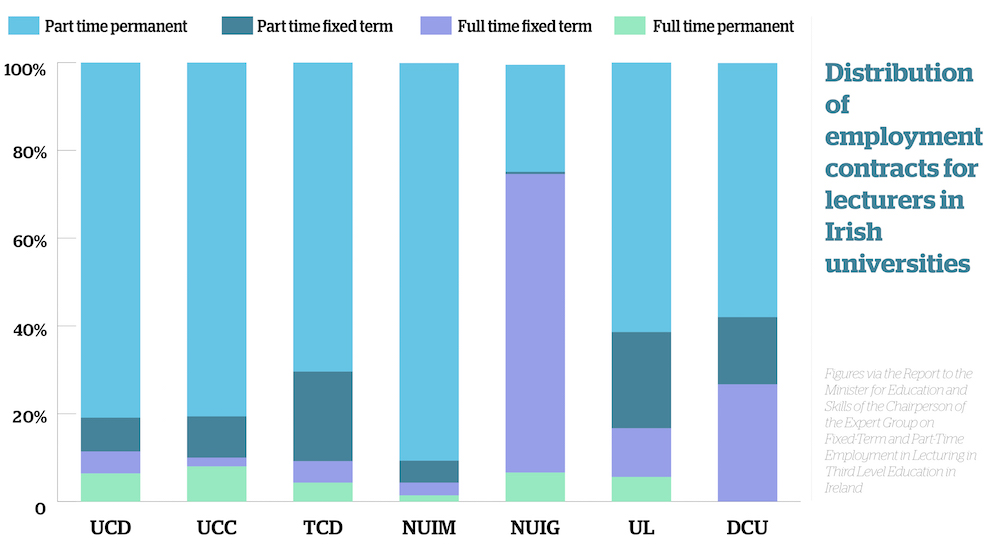The government established expert group chaired by Michael Cush SC, on fixed-term and part-time employment in lecturing in third level education in Ireland last week published its report and recommendations.
The main issue which the expert group was to decide upon was that of fixed-term of and part-time lecturers, and when such staff should be offered contracts of indefinite duration.
Under the framework set out by the Haddington Road agreement in 2013, lecturers are currently eligible for such contracts following a period of continuous sustained employment exceeding three years. Previously, staff had to work continuously in excess of four years before they could qualify for such contracts.
The expert group’s report recommends that the qualification period for contracts of indefinite duration be reduced to a period of continuous employment exceeding two years.
The report also recommends that before advertising available teaching hours, third-level institutions should carry out a review of existing staff to ascertain who would be qualified to take those hours.
The report says a reduction in the qualification period would contribute to an “amelioration in the difficulties described by lecturers’ representatives.
“There is no doubt that the use of part-time contracts is a necessary and desirable feature of third level education in Ireland.
“That said, there is no doubt but that for many lecturing staff, part-time contracts leave them in a very precarious position financially and reduces the attractiveness of lecturing as a career.”
In a press release accompanying the report, the Department of Education and Skills said that “the recommendations contained in the report will assist in addressing concerns raised about precarious employment by Union representatives.”
Union response
In their statement on the publication of the report, the Irish Federation of University Teachers (IFUT) voiced their disappointment with the delays encountered when the expert group sought figures from third level institutions.
IFUT general secretary Mike Jennings said that delays in providing accurate figures meant that reports into the pay for those in first and second level education were published in 2014, compared to the Cush Report’s 2016 publication.
“This disgraceful delay proves [third level institutions] do not care about their reputation for bad employee treatment. IFUT will insist on the immediate implementation of recommendations in the report and will campaign for their application to all staff,” he said.
In preparation of the report, the expert group met with the IFUT, along with the Department of Education and Skills, Dublin Institute of Technology, the Irish Universities Association, the Teachers Union of Ireland, SIPTU and the Institutes of Technology Ireland.
The IFUT also voiced their disappointment with research roles not falling under the remit of the expert group.
“It is very regrettable that Cush was so forcibly prevented by Department of Education from even considering the area of research and researchers”, said Jennings.
Hours
Included in the report are details on the proportion of staff in universities and institutes of technology who are on different types of contract.
Among institutes of technology, the national proportion of lecturing staff who were not full-time and permanent was 25%, which the report says is heavily influenced by institutes of technology in Cork and Dún Laoghaire.
“These Institutes have percentages which are well above the national average, and they account for 44% of all “atypical” employees by headcount in the sector. These factors also have a significant effect on the national percentage of staff who are part-time and fixed-term”, the report says.
Writing in the report, Cush notes that it was agreed researchers did not come under their jurisdiction, but added that “this is the group which suffers most from insecure employment.”
A recent article by Trinity News found that universities across the country are using the JobBridge national internship scheme to fill positions across the spectrum. Roles in administration, libraries, research and marketing have all been filled by third level institutions.
The article notes that Trinity College Dublin’s Health Sciences Faculty had advertised for numerous “research assistant” positions, in neurology and cancer research and that University College Dublin was the biggest user of JobBridge in the third level sector, filling 181 positions since the scheme began.








